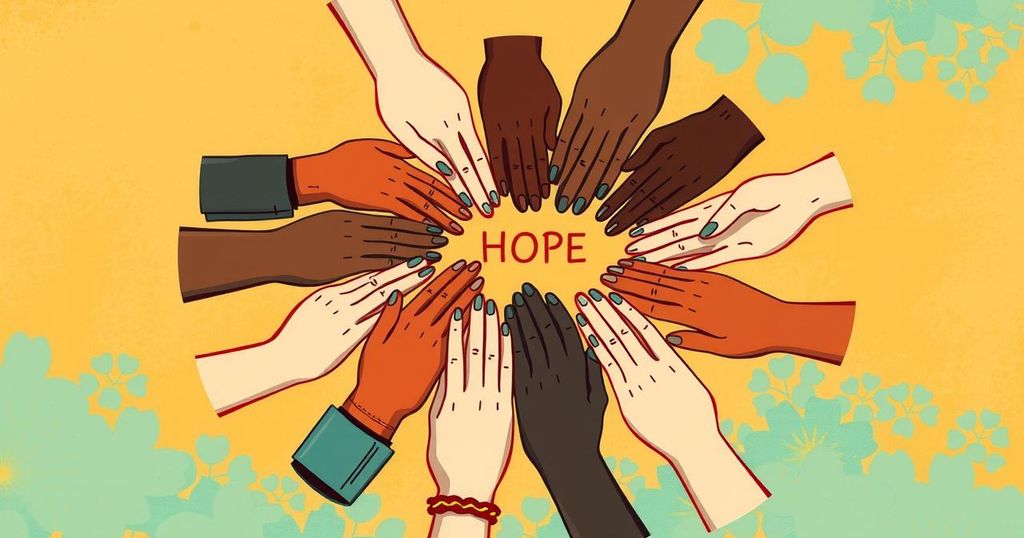No One Left Behind: Supporting Afghan Allies after U.S. Funding Cuts

Following the Trump administration’s funding suspension forAfghans who assisted the U.S., No One Left Behind has stepped in to assist with resettlement efforts. They focus on helping eligible Afghan and Iraqi immigrants through the special visa program, addressing the challenges posed by funding cuts and the need for continued support in transitioning individuals to safety in the U.S.
In the wake of the Trump administration’s decision to suspend funding for Afghans who aided the U.S., No One Left Behind, a charitable organization composed of military veterans and Afghan expatriates, has taken action to assist those at risk of being stranded. One poignant case is of an Afghan man, a former U.S. ally, who was injured by the Taliban for his support. Andrew Sullivan, the organization’s executive director, expressed relief that he was able to help the man resettle in northern Virginia, highlighting the personal stakes involved.
No One Left Behind focuses on assisting Afghans and Iraqis eligible for the special immigrant visa program, created by Congress in 2009 to protect individuals endangered for their support to the U.S. military. The Trump administration’s measures in January included cutting aid for resettlement and suspending flights for those approved for travel, leaving many in difficult situations without assistance. The White House and State Department have not responded to inquiries on this issue.
The operational environment for Afghans has grown increasingly precarious, particularly in temporary settlements. For instance, Pakistan has ramped up deportations of Afghans, and a crucial agreement with Albania is set to expire. There is concern that Trump might enforce a travel ban affecting Afghan evacuees, following an order instructing a review of countries with inadequate vetting processes.
In response to the travel and funding restrictions, No One Left Behind mobilized to prevent Afghans from being stranded overseas by raising funds to cover necessary flights. Between February and March, they successfully booked flights for 659 individuals. Additionally, they have created a support network through a website for visa holders, facilitating connections to aid their relocation efforts.
The organization’s ambassadors, consisting of previous Afghan and Iraqi refugees, have traveled to regions like Albania and Qatar to assist with transit and provide vital information regarding their rights and resources upon arrival in the U.S. For example, an Afghan named Aqila, an ambassador in Albania, noted the uncertainties families felt regarding their future in America, assuring them of support upon arrival.
One notable success story is that of Mohammad Saboor, who, after 17 years supporting U.S. forces, safely relocated with his family to California. Describing the dreadful conditions in Afghanistan post-Taliban takeover, he expressed hope for their future in America, where his children can receive an education. Sullivan emphasized the rigorous vetting processes these individuals undergo, affirming their significant contributions and need for protection.
Aqila reflects on the psychological toll of witnessing refugees’ trauma yet finds fulfillment in their new beginnings in America. She remarked on the visible hope in their eyes when they are finally able to resettle, capturing the essence of the humanitarian mission undertaken by colleagues like Sullivan.
Through their dedicated efforts, No One Left Behind strives to ensure that those whose lives are endangered by their allegiance to the U.S. have safe passage and the opportunity to thrive in their new environment.
No One Left Behind plays a critical role in assisting Afghans facing dangerous consequences for their alliances to the U.S., especially after funding cuts and travel challenges emerged. Their efforts have led to successful resettlement of numerous individuals at risk, showcasing the resilience and hope of those they help. The experiences of these Afghans underscore the need for continued support and attention to their plight in light of ongoing geopolitical tensions. The organization remains vigilant in advocating for the rights of these allies and recognizes the significant sacrifices they have made.
Original Source: www.newsday.com







